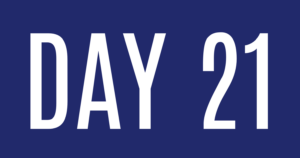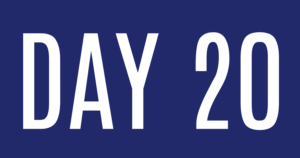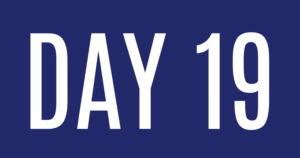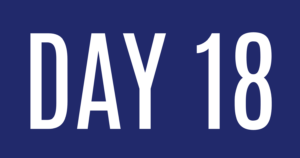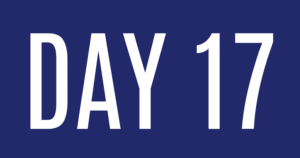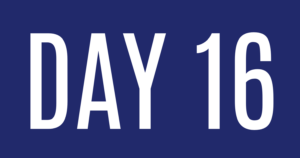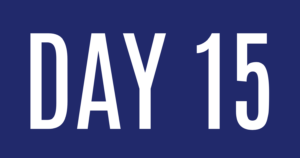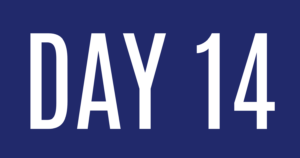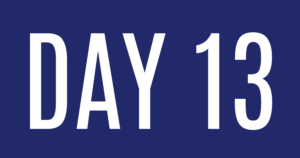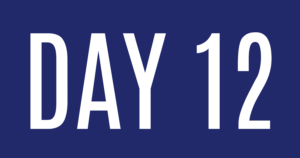Matt Lynn, Director of Community Impact, shares his perspective on race in light of the first National Day of Racial Healing, January 17, 2017.

I was born in the aftermath of the 1960s.
I can remember the conversations my parents would have with their friends as they recalled different events and activities they were a part of during that time of testing and tribulation for this country, and how it affected them as Black Americans and the choices they would make for their families.
I remember growing up during a time when the socially acceptable terminology to define how we were going to co-exist as a nation of multiple races and ethnicities was Racial Tolerance. I remember being told time and time again growing up that I needed to be committed to doing something great with my life, and to take advantage of all opportunities (emphasis on my education) afforded to me because of the sacrifices of all those that came before me to pave the way.
I remember my father’s office in my home growing up where he had prominently displayed a portrait of Reverend Dr. Martin Luther King, Jr., and the times my father would talk with me in that office about the life and legacy of Dr. King, his experiences as a Black man in America, and his dreams for a better life and better world for his children.
And I remember growing up in a predominantly white community with friends who did not look like me, whose parents always accepted me into their homes as if I was their own and proudly proclaimed they did not see me as Black or see the color of my skin. To them, I was simply Matt.
We entered a time of Racial Harmony.
Then came 1991 and the Rodney King – Los Angeles Police case.
America was forced to face the reality that racism is still very real, that we exist in a country where inequity and discrimination are still dark fabric pieces in the historical tapestry of the American story. It’s a history this country has not fully accepted or dealt with, but rather substituted with the illusion that as long as the playing field appears level for all, then everything is OK.
Now is the time to move away from the illusion to a time of Racial Healing.
It can be frightening to have to look in a mirror because we may not like the reflection. But it is hard to deny the totality of what we see and hear flooding our news and social media outlets: stories and images of hate, injustice and at times blatant discrimination. Today, the mirror is being held up right in our face.
The questions I have are: 1) How will we choose to respond to what we see? and 2) When will we take ownership of the fact that we all have to make a choice to either perpetuate our current state and suffer the consequences of inaction, or assume responsibility to heal from the atrocities of the past and together build toward a different future?
The National Day of Racial Healing is the open invitation, the all-call to personally respond to these questions.
So, what side of history will you be on in this story?
At this time of year, when we share in the national celebration and recognition of the legacy of Reverend Dr. Martin Luther King, Jr., we honor a man who dared to dream and had the courage to offer the opportunity to others to dream with him about a brighter future. As a Black man married to a White woman and the father of three beautiful bi-racial daughters, I am very aware of the realities of the world today. I look to the future with uncertainty, like so many.
But like Dr. King, I too am a dreamer. I live in the hope and belief that my children, like his, will one day live in a world where they will not be judged by the color of their skin but rather by the content of their character – and that will be enough. I have dedicated my life to working toward this dream, this reality for all children and families. I am fortunate to work for United Way, an organization that is dedicated to that same dream.
United Way of the Battle Creek and Kalamazoo Region is working to address historical inequities that have challenged many of our most vulnerable populations from realizing their full potential, inequities that have created the conditions for the racial and economic disparities we all must work together to eliminate if we dare to dream, to hope for a brighter future.
What kind of conditions need to be addressed?
Conditions such as infants born to Black families being four times more likely to die before their first birthday than White children.
Schools in our economically challenged neighborhoods lacking the sufficient resources to ensure that children are succeeding academically and on the pathway to high school graduation and beyond from as early as preschool.
Insufficient housing and employment opportunities to lift families out of poverty and into a level of economic stability where they can provide for their essential needs while having enough money to open a savings account, purchase a home or save for their children’s college education.
United Way serves as a leader in bringing people together to share in the work of creating change, to share in the work of giving equal opportunity to all and eliminating inequities that lift up some at the expense of sacrificing others, and to share in the responsibility of making hopes and dreams of a brighter future for children and families a reality.
Early in my career with United Way, a mentor of mine shared with me this quote, “If United Way’s did not exist, communities would have to invent an organization like United Way.” I am proud to be a part of such an organization, one dedicated to learning from the past by bringing about social justice for disparate populations, equality in all having the opportunity to reach their full potential, and equity in helping our fellow human brothers and sisters to achieve their hopes and dreams for today and tomorrow.
Today I invite you to join with United Way and its many partners across this region in keeping the dream of Dr. King alive and well in 2017. Let us march on, together in healing and inclusiveness as one “human family,” till victory is won!
We must come to see that the end we seek is a society at peace with itself, a society that can live with its conscience. – Reverend Dr. Martin Luther King, Jr.
(Top image: stockimages/freedigitalphotos.net)

